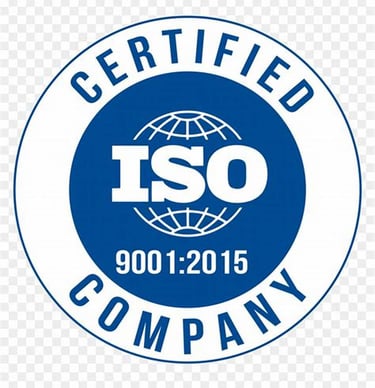We recognise that food manufacturers are facing several significant challenges
Rising Costs: The surge in energy and fertiliser prices, labour market shortages and increased payroll taxes have driven cost pressure impacting margins.
Regulatory Changes: New regulations, including those related to Brexit, have added complexity and costs of compliance. The UK Government’s Net Zero Strategy aims for net zero carbon emissions by 2050, with the food and drink sector targeting 2040. This involves reducing direct (Scope 1), indirect (Scope 2), and supply chain (Scope 3) emissions, which can be particularly challenging. In addition, there is pressure to manage or enhance the nutrient profile of foods.
Sustainability Pressures: Factors other than regulatory requirements also drive UK food manufacturers to improve sustainability. 35% of the UKs GHG emission come from food and drink, and the industry aims to halve CO2 emissions by 2030. As part of this, there is pressure to reduce food waste - around a third of all food produced is wasted, contributing significantly to carbon emissions. In addition, there is pressure to ensure that agricultural commodities come from sustainable sources in order to prevent biodiversity loss and deforestation, accompanied by increasing consumer demand for demonstrably sustainable products.
Supply Chain Disruptions: Ongoing global supply chain issues have led to delays and increased costs for ingredients, and most importantly there is threat of systemic risk resulting from climate change - see the open memo by 'Inside Track'

Together, these issues are creating a challenging environment for food manufacturers, but also opportunities for innovation and growth.
We offer food manufacturers a number of ways to respond to these challenges and opportunities, along with the ability to diversify and localise their protein sources.
Meeting sustainability goals: We are sustainable at the core and can offer you a viable way to reduce Scope 3 emissions at scale, while improving the financial sustainability of UK farmers while you save money.
In addition, our products enable food manufacturers to reduce the use of soy. Soy is a versatile and widely used crop, but its use can result in perceived issues pertaining to resulting deforestation, carbon emissions, biodiversity loss, soil degradation, and water use and pollution.
Cost reduction: We offer food manufacturing solutions that enable the displacement of some high-cost ingredients with highly-nutritious plant proteins with the 'health halo' of broccoli. Implementing our products will typically require minimal changes to existing food processing processes.
New Product Innovation: We give your NPD team new opportunities for creativity, including maintaining the same taste and mouthfeel; using the umami taste to enhance Asian flavours; biofortifying foods; or reducing / avoiding the need for sulphites.
Avoiding regulatory exposure: As an on-shore supplier, we reduce the complexity of managing imports and the associated costs.
Reducing exposure to supply chain disruption: As an on-shore supplier, we reduce the number of elements of the supply chain that can let you down. We can also price in local currency as we are not exposed to FOREX variations. When purchasing from us you will not suffer import tariffs and global shipping costs. Also, as we are not a globally traded commodity, we can fix a price to reduce unexpected impacts to your P&L. Finally, as we produce 'more from less' we help manage some of the challenges from climate changes impacting availability.
Extending market size: We can help you extend the possible buyers through vegan egg alternatives and displacing allergenic ingredients with our allergen-free solutions.
Improving or managing nutrient profile: We can give you a mechanism to improve or manage nutrient profile using healthy, allergen-free ingredients.
30%+ protein, 30%+ fibre, 30% natural sugar [1] provided as IQF or as powder dried at <40 degrees to preserve sulforaphane and polyphenols
Applications:
Burgers, smoothies, soups, sauces
15%+ protein, 55%+ fibre, 15% natural sugar [1] provided as IQF or fibres dried at <40 degrees to preserve sulforaphane and polyphenols
Applications:
Sausages, breads, cakes, pet food
Neutral-coloured natural
protein and carbohydrate
Applications:
Ice cream
Egg substitute, charged proteins
Applications:
Haircare products, baked products, mayonnaise
Sulforaphane
and polyphenols
Applications:
Supplements
[1] Nutritional content calculated by dry weight







25g of natural sugar per litre, can be diluted to need
Applications:
Feedstock for mycelium growth, precision fermentation or Anaerobic Digestion ('AD')
Our ingredients can be provided in a number of forms: chilled, dried and Individual Quick Frozen ('IQF') so they can fit with current production workflows and equipment.



Get in touch
Keep updated
© 2024. All rights reserved.
+44 1952 327 357
welcome@upp.farm
Upcycled Plant Power ('UPP') Limited Company number: 14171122
VAT Number: 428 2222 17
Registered address:
Agri-Tech Centre
Poultry Drive
Edgmond, Newport
Shropshire
United Kingdom
TF10 8JZ
Connect with us
A list of our trademarks can be found here


